Hong Kong extradition bill crisis: government’s relationship with pro-establishment camp takes a hit, as Carrie Lam accused of going it alone
- Priscilla Leung says chief executive failed to consult bloc before suspending bill
- Senior mainland Chinese official accuses protesters of using violence every time they demonstrate
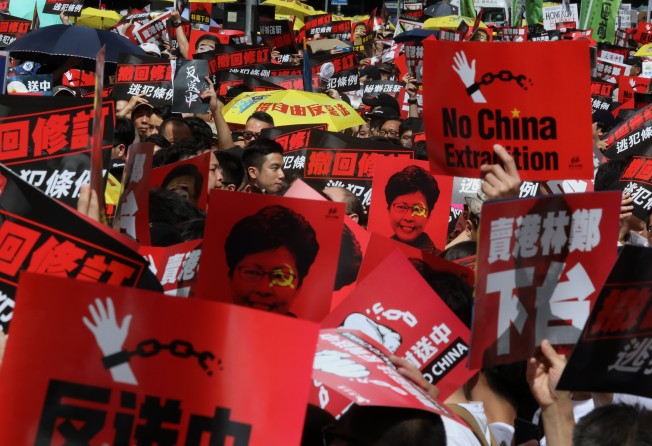
Hong Kong’s extradition bill saga has taken a toll on the government’s relationship with the pro-establishment bloc, as a Beijing-friendly lawmaker on Tuesday accused the city’s leader of going it alone without communicating with her allies.
Priscilla Leung Mei-fun, vice-chairwoman of the pro-Beijing Business and Professionals Alliance for Hong Kong, said the government had paid the price for pressing ahead with the bill. But she urged protesters not to pressure the government by seeking international attention, with President Xi Jinping and his US counterpart Donald Trump set to meet on the sidelines of the G20 leaders’ summit in Osaka this weekend.
Senior mainland Chinese official Li Fei, who chairs the Constitution and Law Committee under Beijing’s top legislative body, the National People’s Congress Standing Committee, commented for the first time on the major protests triggered by the bill.
“Hong Kong is a city with the rule of law. You can express your opinion through peaceful rallies. But I cannot understand why violence has to be used every time they protest against the government,” he said in Beijing on Tuesday morning.
“No matter how worried you are [about the bill], you cannot break the law and cause harm to police.”
Hong Kong’s embattled government was again lying low this week in the face of continuing opposition to the now-suspended bill, with the city’s leader cancelling Tuesday’s weekly cabinet meeting.
The extradition bill would allow the transfer of fugitives to mainland China and other jurisdictions with which Hong Kong has no extradition deal.
After hundreds of thousands of residents took to the streets on June 9 to call for the bill to be withdrawn, the government responded by saying it would still go ahead with the legislation.
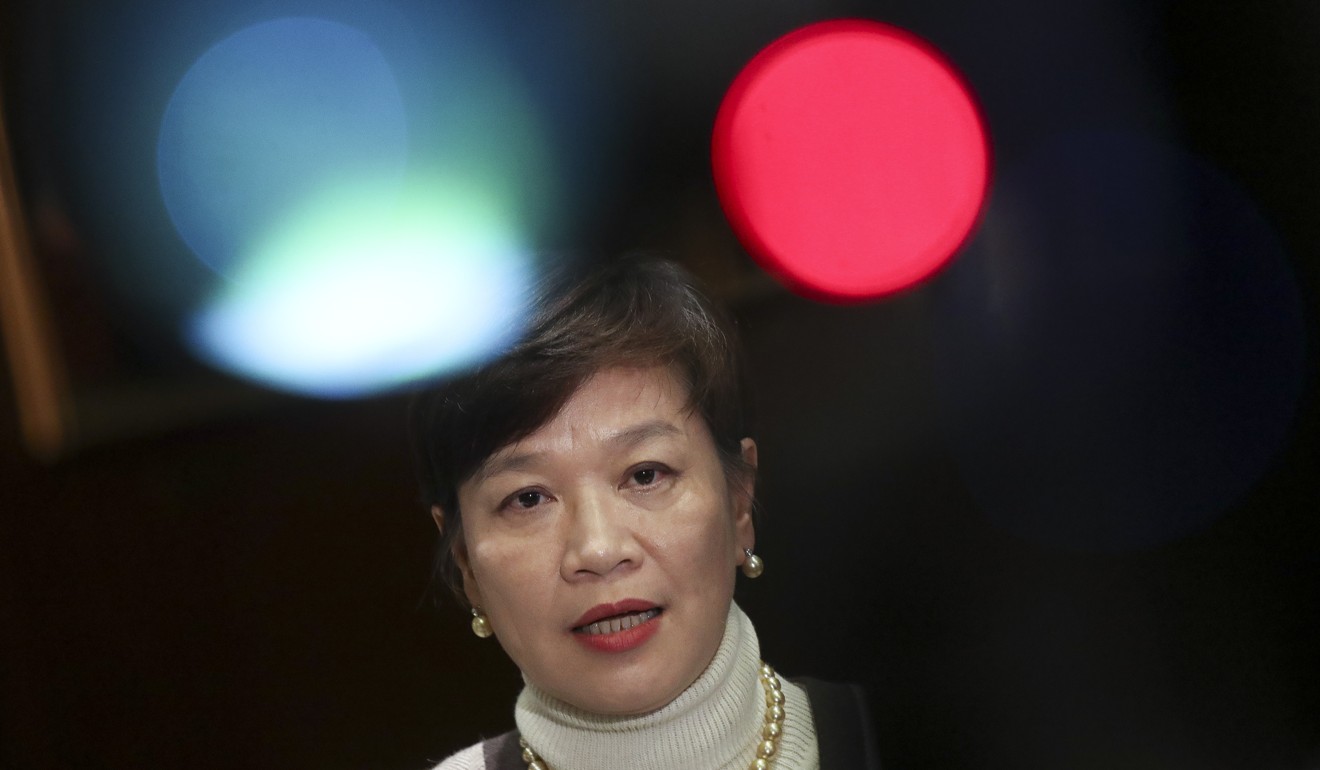
Leung told a radio programme on Tuesday the government had failed to properly consult the pro-establishment camp on both occasions.
“Whether it was the announcement on June 9 … or the decision to suspend the bill on June 15, I think that, even for us who supported the bill, it was very abrupt,” she said.
“So all supporters of the bill were very angry. It’s like driving a train – you need some buffering time [before suspending it],” she said. “The government has paid the political price.”
Leung recalled that on June 9, she asked officials to add more human rights safeguards to the extradition bill.
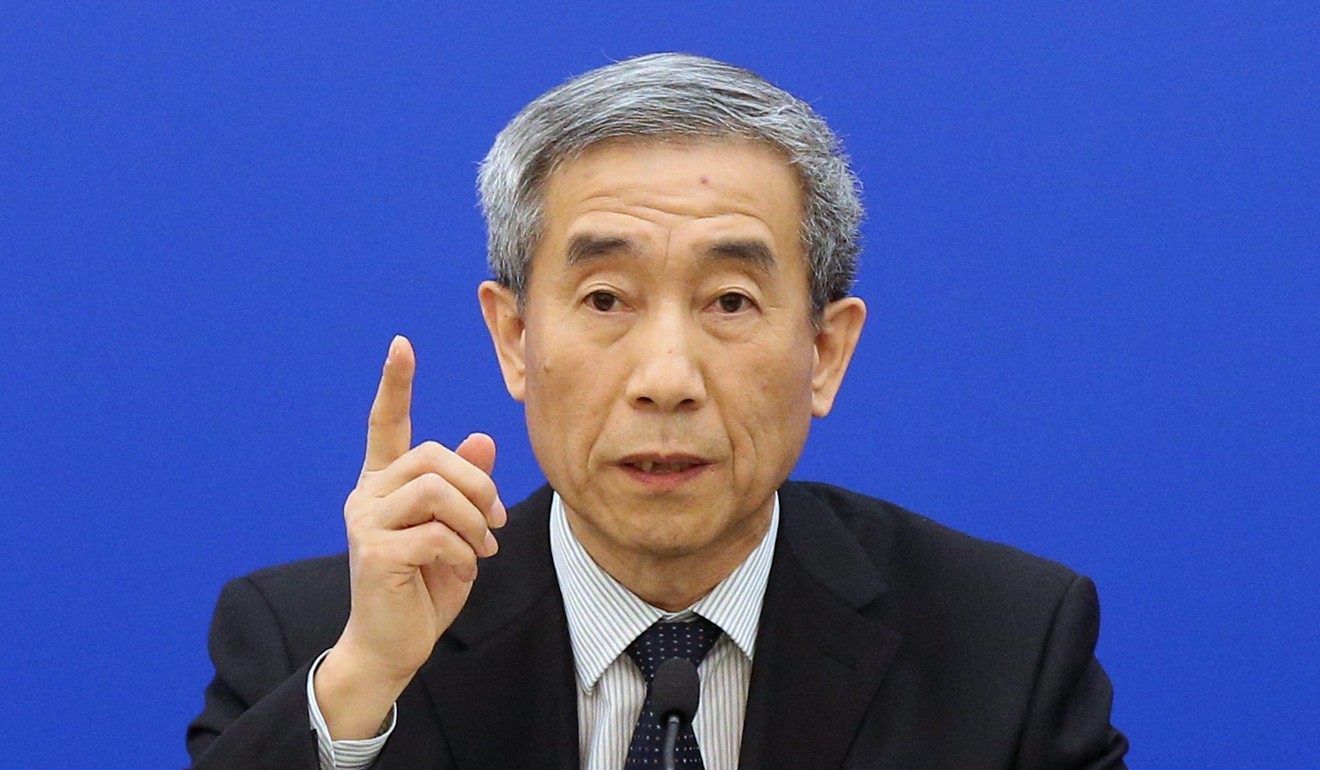
Regarding protesters’ calls for an independent inquiry into the police’s use of force on June 12, Leung only said there should be a comprehensive review of the police’s relationship with the public.
She also warned that foreign intervention would undermine Beijing’s “one country, two systems” governing policy for Hong Kong, under which the city was granted a certain degree of autonomy following its handover to China from Britain.
Former chief secretary Anson Chan Fang On-sang called on Lam to respond to the protesters’ demands, such as withdrawing the bill, or setting up an independent inquiry into the police’s use of force on June 12.
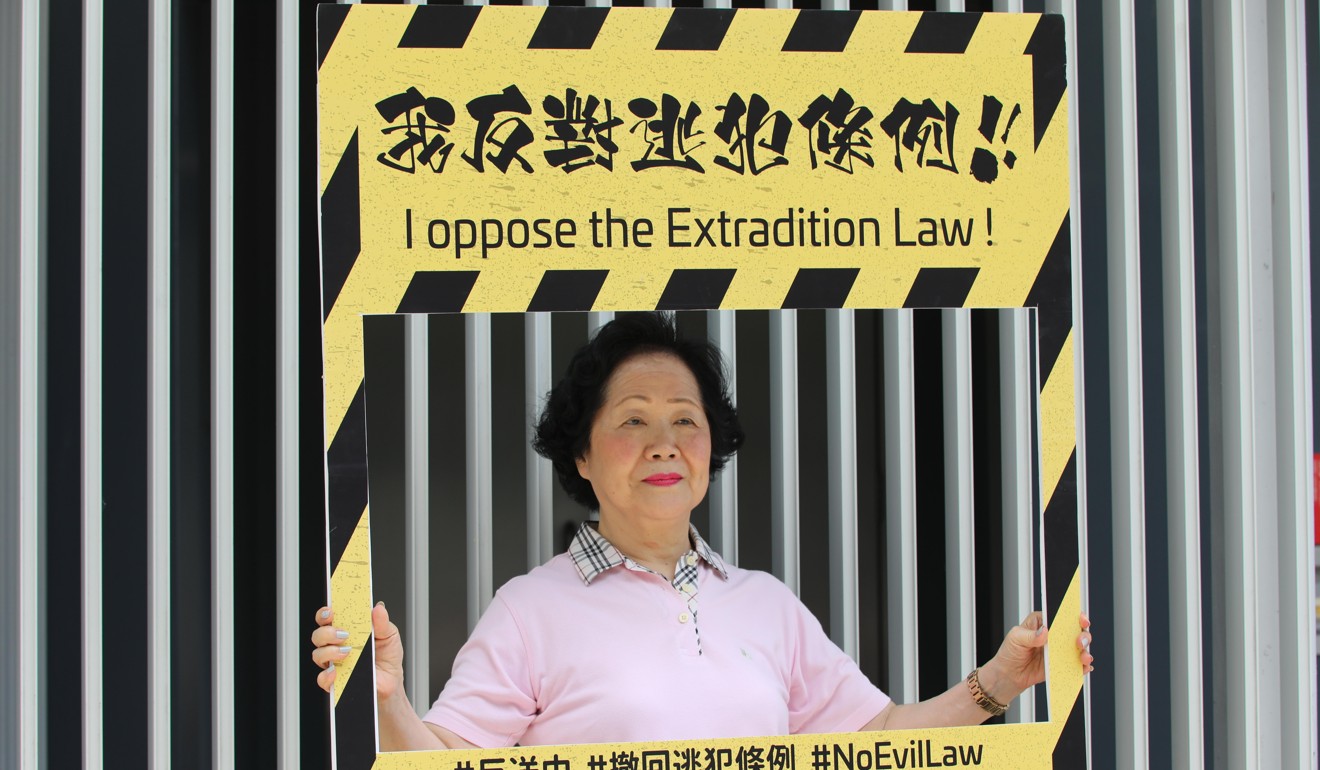
Chan said that if any official should step down because of the controversy, she believed Secretary for Justice Teresa Cheng Yeuk-wah, as the government’s top legal adviser, had the biggest responsibility.
“Even if the government can’t respond to all four of the appeals, by responding to one or two of them it can let the public understand their voices are being heard,” she said.
Chan also said that rather than stepping down, Lam should govern with humility for the next three years.
“Hong Kong people can forgive her, but she needs to learn the lesson,” the former official said.
“It’s urgent for her to deliver a message to citizens that ‘I’m chief executive of Hong Kong, not of Beijing. I will speak for you. I will stand up to safeguard one country, two systems’.”
Chan added Lam needed to communicate with young people.
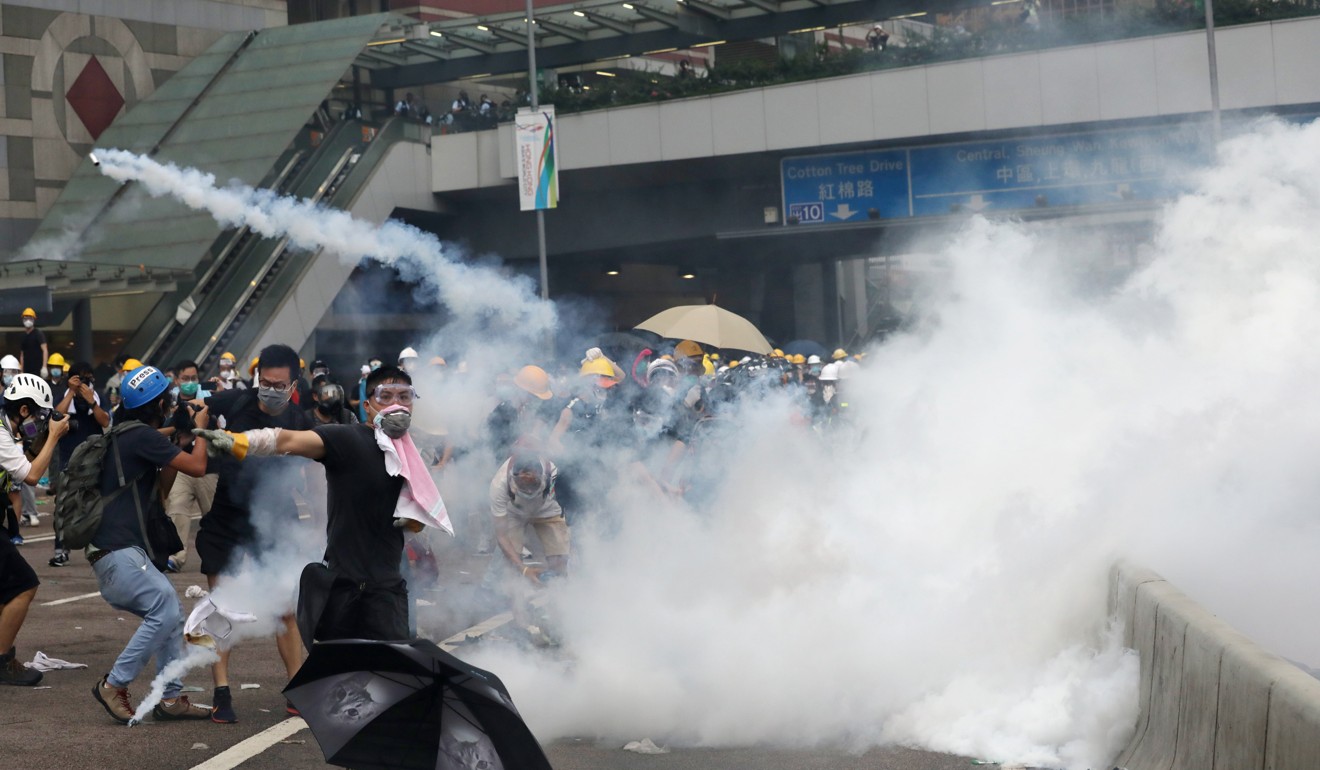
Meanwhile, the heads of two Hong Kong district councils banned dicussion of the extradition bill on Tuesday.
Yuen Long district council chairman Shum Ho-kit stopped two pro-democracy camp councillors from tabling a non-binding motion, that urged the government to withdraw the bill and conduct further consultations on the matter.
“District issues should be discussed in this council, but political issues should be discussed at other political platforms,” Shum said.
Democratic Party district councillor Zachary Wong Wai-yin, who submitted the motion, said he was surprised by Shum’s move, and said the chairman had acted out of character.
“I have reasons to suspect he is facing great pressure [to block the motion],” Wong said.
In Tai Po, pro-democracy camp politician Lau Yung-wai said he was told by the district council’s secretariat that chairwoman Wong Pik-kiu had blocked two of his motions about the bill.
Wong Pik-kiu, a member of the pro-government Democratic Alliance for the Betterment and Progress of Hong Kong, refused to comment on her decision.
Lau said he had submitted the motions in accordance with the rules of procedure and it was unacceptable for Wong to block them.
“There is no reason to stop an elected councillor from voicing the public’s concerns,” Lau said.
In a separate development, a senior Vatican priest praised young Hong Kong people “for standing up to fight for justice” as he celebrated mass on Saturday, according to the Hong Kong-based Union of Catholic Asian News.
Cardinal Kevin Farrell, the Vatican’s Prefect of the Dicastery for the Laity, Family and Life, was quoted by Hong Kong student Erica Ng as having mentioned the city’s younger generation at the mass. But it was unclear if Farrell was referring to their role in the recent Hong Kong protests.
It was previously reported that Ng and Stephen Anthony Wong, representatives of the Hong Kong Federation of Catholic Students, had brought up the extradition bill when they met Pope Francis at the Vatican on Saturday. The students were in Rome to attend an international youth forum.
Ng said the meeting with Pope Francis, during which the pontiff promised to pray for Hong Kong, took place after the mass officiated by Farrell.